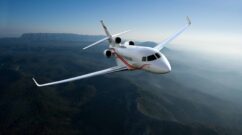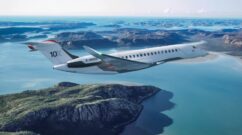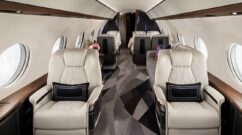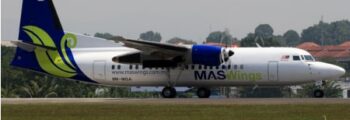Fokker is a Dutch aircraft manufacturer, founded in 1912 by a true aviation pioneer, Anthony Fokker. The company specializes in manufacturing aircraft, and is based in Johannisthal, Germany, in the Berlin district. However, in 2015, the Fokker company came to an end and was bought by the GKN aviation group. From then on, Fokker was a subsidiary of GKN. Let’s take a look at the history and achievements of the Fokker company.
The history of Fokker
Where it all began
It all started with one of the true pioneers of the aviation world, Anthony Fokker. This aircraft engineer was born in 1890. He worked in the aviation sector for his whole career. When he was 20 years old, he made his first plane, which he called “The Spin”. This propeller plane was the first Dutch plane to fly in its home country, over the city of Haarlem.
During the First World War, Fokker had to built aircraft for the German Air Force. He partnered with another aviation engineer, Hugo Junkers. It was then that he produced the Fokker E.III, the Fokker Dr1 and the Fokker D VII. These models were a great success in the German Air Force.
In 1919, after the end of the war, Fokker returned to the Netherlands after his partnership with Junkers ended. He then set up his own company.
How it all began for the company Fokker.
- 1919: Fokker created the Netherlands Aircraft Factory (Fokker) in Amsterdam, capital city of the Netherlands. It mainly manufactured civil aircraft for passenger transport on commercial routes. However, Fokker also continued to produce aircraft for military purposes just like he did during the First World War. These would be used for the Second World War.
- 1925: the Fokker company became one of the largest in the world. At that time, the company owned factories in both the Netherlands and the United States.
- 1939: Anthony Fokker died in New York, United States. He left behind a thriving aviation company at the time of the Second World War.
- 1951: the Fokker factories in the Netherlands were destroyed during the war. They had to be rebuilt. The new factory was located near Amsterdam, close to Schiphol airport. Other factories were lated set up in the country. Fokker gradually rebuilt itself and started to gain ground. The company flourished for many years and aircraft orders and deliveries continued.
- 1955: aircraft manufacturing continued after the war in this new factory. That year the Fokker F27 Friendship made its first flight. It was an airliner. It was considered as one of the best aircraft manufactured after the Second World War. In the following years, it became one of the best-selling turboprop aircraft on the market. At least 800 were delivered up until 1986.
- 1958: the company grew its reputation further with the Fokker F28 Fellowship. It made its first flight that year and cemented its leading role in innovation. Following that, the Fokker 50, Fokker 70 and Fokker 100 models were produced.
- 1969: Fokker became a partner of VFW (Vereinigte Flugtechnische Werke), a German aircraft manufacturer. Together, they took on the task of building pressurized units for the American space laboratory, Spacelab.
The end of Fokker and its takeover by GKN Aerospace
1996: This year marked the end of all operations of the Fokker company in its own name. The company left behind many aircraft designs that are still in operation today. The company was bought by other entities but occasionally kept its identity through other branches that were created.
That year, the Fokker company came to and end. Its operations became independent and the autonomous branch was called Dutch Space. Its aircraft equipment, designs and maintenance operations were acquired by Stork Aerospace Group. An entity called Stork Fokker was then created. This entity was in charge of managing the Fokker aircraft that were already in operation, about 1200 at that time.
In 2010, after almost 15 years of prosperity, Stork Aerospace Group changed its name to Fokker Technologies. The legacy of the name Fokker continued. Fokker Technologies created several subsidiaries including Fokker Elmo, Fokker Aerostructures, Fokker Landing Gear and Fokker Services. Fokker Elmo specialized in connectivity and operated in places such as North America and China. Fokker Aerostructures was dedicated to manufacturing of different aircraft structures. Fokker Landing Gear was responsible for the production landing equipment. Finally, Fokker Services took care of the interior of the aircraft, which included optimizing the cabins to make them as light as possible. This subsidiary also handled the avionics of the aircraft, equipping them with electronic systems.
That same year in 2010, Fokker partnered with an aviation equipment company, Goodrich Corporation. Together they produced different parts for various aircraft models for other aircraft manufacturers, including Bombardier.
In the following years, the Fokker subsidiaries partnered with aircraft manufacturers such as Dassault Aviation and Boeing. The Fokker entities supplied components for various aircraft of these manufacturers.
Fokker was no longer the manufacturer it once was. Its entities worked as equipment suppliers in many areas of the aviation sector and for various international aircraft.
It was in 2015 that GKN Aerospace (Guest, Keen and Nettlefolds), a company that specialized in aviation and automotive equipment, bought the Fokker entities for €706 million. The Fokker Technologies entities kept the same name but were managed and integrated within GKN.
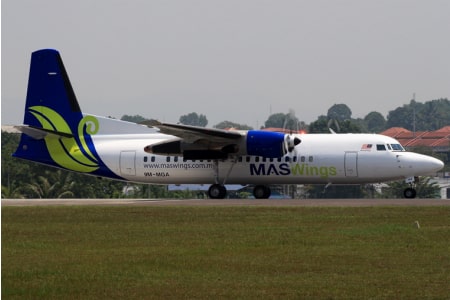
Fokker’s key figures
Fokker has produced many aircraft over the past 100 years of its existence. Let’s take a look at some of these key figures:
- 213: the number of Fokker 50 produced.
- 4: the number of Fokker 6 produced.
- 47: the number of Fokker 70 produced.
- 283: the number of Fokker 100 produced by the manufacturer.
- 586: the number of Fokker F27 Friendship produced by the manufacturer.
- 241: the number of Fokker F28 Fellowship built by the manufacturer.
The activities of the Fokker company
Fokker’s activities under GKN Aerospace
Today, GKN Aerospace is the world’s leading supplier of aviation and automotive equipment. This UK-based company has a presence in 41 locations across 13 countries. At least 90% of aircraft in operation today make use of GKN’s expertise and equipment (therefore they are supporting the Fokker company). The company is constantly evolving and developping more innovative solutions for the future. It is committed to evolve with ever-changing times, current issues and the many changes that come with this sector. Its priority is also to respect the different criteria of air safety.
The activities of the Fokker entities
There are various activities within the different Fokker entities, which include Fokker Technologies, Fokker Services and Fokker Techniek. Under the management of GKN, Fokker evolved as an aviation equipment supplier. Although the company no longer manufactures its own aircraft around the world, it helps in the manufacturing of aircraft in other manufacturers. Fokker has worked for Airbus, Boeing and Dassault Aviation. As an independent supplier, Fokker offers its expertise in the production of landing gear, aircraft structures, equipment and electrical systems integrated into aircraft. Likewise, the company can perform maintenance on parts it has supplied, or manufacture spare parts. The motto at Fokker Service is “design, repair and modernize”. It is thanks to a legacy of more than 100 years that Fokker is one of the world’s leaders in the aircraft equipment market.
Fokker’s environmental and sustainable challenges
GKN and the Fokker entities have the clear aim of keeping up-to-date with the times and advocating sustainable approaches. At a time when climate issues are at the forefront, it is vital for aviations industries to evolve their approach. Fokker’s subsidiaries are also part of this approach. GKN (Fokker) is doing everything to develop technologies that will make it possible to decarbonize the aircraft already in circulation. This approach will also be integrated into the creation of a new generation of less polluting and ultimately CO2-neutral aircraft. By 2050, the aviation company wants to reach zero greenhouse gas emissions.
In addition to the measures taken to create more environmentally friendly aircraft, it is also the factories that are benefiting from changes in this direction. Like other aircraft manufacturers, the GKN plant in the Netherlands has been powered with 100% renewable electricity since 2021. In addition, other initiatives are carried out to respect the environment such as recycling and the proper disposal of hazardous materials. Sustainable aviation is the key word for aircraft manufacturers today.
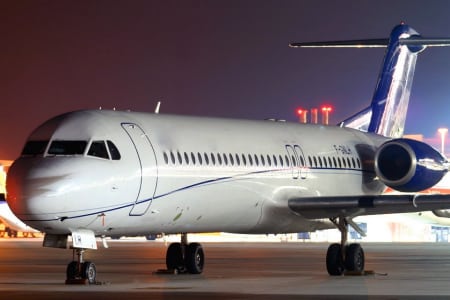
The aircraft fleet of Fokker
Since its creation in 1912, the aircraft manufacturer Fokker has produced many aircraft. Both for civil and military purposes. The most notable in civil aviation are undoubtedly the Fokker 27, Fokker 50, Fokker 60, Fokker 70 and the Fokker 100. Let’s take a look at 2 of them which are still in operation.
- Fokker 100: also called F100, this aircraft is a short-haul airliner. It can carry up to 109 passengers. It can be designed with two different classes in the cabin, which allows it to accommodate 97 passengers. With a range of 2700 km when the aircraft is at full capacity, it is ideal for short regional or international trips. It is also very suitable for group flights over short distances. The Fokker 100, which has benefited from various improvements, has very low maintenance costs. It is very good value for money compared to other similar aircraft. Before the arrival of the Boeing 737 or the Airbus A319, the F100 was one of the leaders in air transport, for planes with about 100 seats. This aircraft has a simple cabin design, with two rows of two and three seats separated by a central aisle.
- Fokker 50: this is a turboprop aircraft whose production stopped in 1997. It is in a way the smaller version of the Fokker 100. It can carry up to 55 passengers on board, over a distance of 1500 km. With this range, it is ideal for short regional trips. Today, about 25 airlines use Fokker 50s. In the same way as the Fokker 100, it can be used by business aviation for group flights. It can be rented and privatized to transport sports teams or companies to a conference for example.
You now know everything about the aircraft manufacturer Fokker. At AEROAFFAIRES, our team is available 24/7 at +33 (0) 1 44 09 91 82. Don’t hesitate to contact us or complete our online quote. We will provide you with the ideal private jet suited to your needs.

